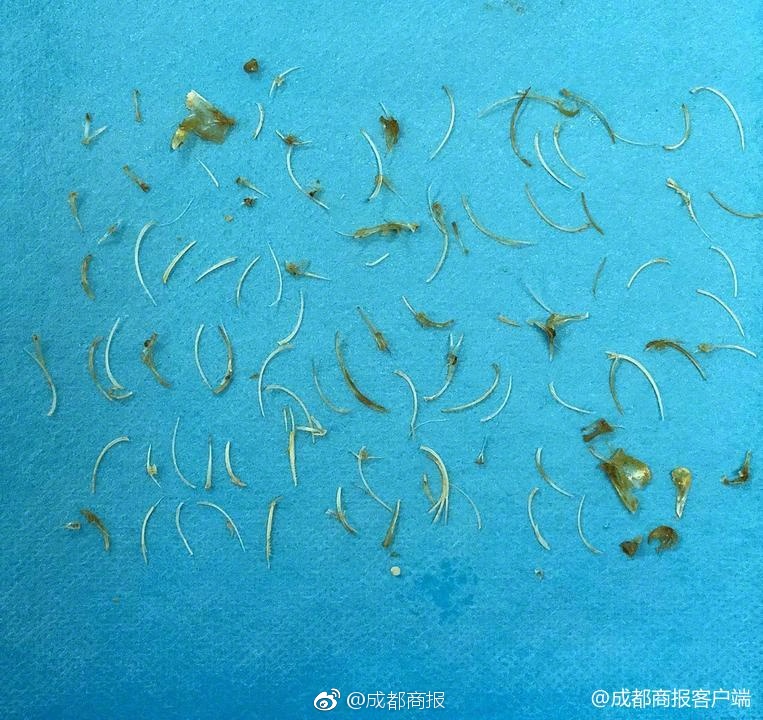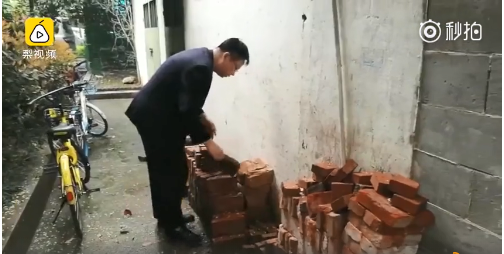
1. The failure of the temperature sensor or temperature regulator; the reason for the buzzing of the car at low speed or variable speed is that the gap between the piston and the cylinder wall is too large; the buzzing at high speed is caused by the sound Caused by vibration. The temperature sensor or temperature regulator has failed.
2. Most of the reasons why the car buzzes at low speed or when changing gears are caused by the excessive gap between the piston and the cylinder wall. During the installation process, when the installation configuration is too tight and there is abnormal wear, there will be a buzzing phenomenon. Another reason is that the engine explodes on the cylinder, which may be caused by early ignition angle or more carbon accumulation in the cylinder.
3. Other reasons: gearbox problems: accelerationThe buzzing sound is not always caused by the engine, and it may also be caused by friction due to the wear of the gearbox bearing and the reduction of lubricant.
4. The car will make a buzzing sound when driving, and speed is the cause of this situation. Among them, the common reasons are as follows: the wheel bearing of the car is worn or loose. The tire was partially worn or eaten. Wheel bearings are one of the most important parts of the vehicle, which can make the wheels run freely.

1. The reason for the buzzing of low-speed or variable-speed cars is the piston and cylinder wall The gap is too big. During the installation process, when the assembly is too tight and there is abnormal wear, there will be buzzing. Another reason is that the engine knocks on the cylinder. The engine knocks on the cylinder in the initial stage, which may be caused by the early ignition angle or the accumulation of more carbon in the cylinder.
2. Most of the reasons why the car buzzes at low speed or when changing gears are caused by the excessive gap between the piston and the cylinder wall. During the installation process, when the installation configuration is too tight and there is abnormal wear, there will be a buzzing phenomenon. Another oneThe reason is that the engine bursts on the cylinder, which may be caused by the early ignition angle or more carbon accumulation in the cylinder.
3. The reason for the engine buzzing: the engine buzzing at idle: it may be the sound made by the work of the electronic fan for water tank heat dissipation, but this sound is indirect. If the buzzing has been there, it may be a malfunction of the temperature sensor or the temperature regulator.
4. The abnormal sound of the bearing is a regular buzzing sound, such as the engine tightening wheel, idler, etc. At this time, the relevant parts need to be replaced. Only by figuring out the real reason for the loud engine noise can we "put the right medicine" and avoid the waste of oil and the increase in vehicle maintenance costs caused by blindly replacing the oil.
5. The temperature sensor or temperature regulator fails;The reason for the buzzing of the car at low speed or in variable speed is caused by the excessive gap between the piston and the cylinder wall; the buzzing in the state of high-speed operation is caused by sound resonance. The temperature sensor or temperature regulator is faulty.
6. What is the reason for the loud buzzing sound of the engine? The temperature sensor or temperature regulator fails; the reason why the car buzzes at low speed or in variable speed is that the gap between the piston and the cylinder wall is too large; the buzzing at high speed is caused by sound resonance. The temperature sensor or temperature regulator has failed.
Most of the reasons for the buzzing sound when the car is low or changing gears are caused by the excessive gap between the piston and the cylinder wall. During the installation process, when the installation configuration is too tight and there is abnormal wear, there will be a buzzing phenomenon.Another reason is that the engine explodes on the cylinder, which may be caused by early ignition angle or more carbon accumulation in the cylinder.
The reason for the loud buzzing of the engine: temperature sensor failure, excessive gap between the piston and cylinder wall, and improper oil selection. Temperature sensor failure Engine buzzing when idling: When the car is idling normally, the buzzing may be caused by the work of the electronic fan in the water tank, but this noise is indirect.
The failure of the temperature sensor or temperature regulator; the reason for the buzzing of the car at low speed or variable speed is caused by the excessive gap between the piston and the cylinder wall; the buzzing at high speed is caused by sound resonance. The temperature sensor or temperature regulator is faulty.
The reason for the buzzing of low-speed or variable-speed cars is that the gap between the piston and the cylinder wall is too large. During the installation process, when the assembly is too tight and there is abnormal wear, there will be buzzing. Another reason is that the engine knocks on the cylinder. The engine knocks on the cylinder in the initial stage, which may be caused by the early ignition angle or the accumulation of more carbon in the cylinder.
Most of the reasons why the car makes buzz at low speed or when changing gears are caused by the excessive gap between the piston and the cylinder wall. During the installation process, when the installation configuration is too tight and there is abnormal wear, there will be a buzzing phenomenon. Another reason is that the engine explodes on the cylinder, which may be caused by early ignition angle or more carbon accumulation in the cylinder.
The engine is suitable for bothPower generator, which can also refer to the whole machine including the power unit (such as gasoline engine, aircraft engine).
The foot glue is aging or loose; improper oil use; insufficient engine cylinder; carbon and sludge will increase the operating resistance of the engine, etc., which will make the engine louder. Common reasons and solutions for loud engine noise: aging or looseness of the foot glue. Foot glue is a rubber block between the engine and the frame.
There are three main reasons why the sound of the car engine becomes louder: the noise white sound generated by acceleration. To judge whether these noises are normal, the best way is to compare the difference between new and old noises whether you have heard similar noises before.If the noise of the whole vehicle is too loud, there may be a problem. Belt noise.
What are the reasons why the sound of the car engine becomes louder? The screw of the lower guard plate of the engine is loose. When we fixed him, the strange sound disappeared! The plastic parts in the engine compartment are loose. For example, the engine cover, intake pipe, etc., just tighten it. The engine belt makes a strange sound.
The reasons are as follows: it is not lubricated enough when the cold car starts, and the hydraulic column and mechanical rocker arm fail to work properly, resulting in a rattling sound. The condition of the oil is not right: if the viscosity of the oil is too high or too low, the engine will make noise. The belt is not elastic enough: the engine makes a squeaky sound at work.
The engine is very noisy during cold start. When the car is parked for a long time and started, the engine will vibrate violently and then make a "da-da" sound.
The reason for the loud noise of the car engine: the first reason: the foot glue is aging or loose; the foot glue is the rubber block cushioned between the engine and the frame. Its function is to reduce the vibration and buffering of the engine during work, and to fix the engine.
1. The reason why low-speed or variable-speed cars make buzz is that the gap between the piston and the cylinder wall is too large. During the installation process, when the assembly is too tight and there is abnormal wear, there will be buzzing. Another reason is that the engine knocks on the cylinder. The engine knocks on the cylinder in the initial stage, which may be caused by the early ignition angle or the accumulation of more carbon in the cylinder.
2. Most of the reasons why the car buzzes at low speed or when changing gears are caused by the excessive gap between the piston and the cylinder wall.During the installation process, when the installation configuration is too tight and there is abnormal wear, there will be a buzzing phenomenon. Another reason is that the engine explodes on the cylinder, which may be caused by early ignition angle or more carbon accumulation in the cylinder.
3. The reason for the engine buzzing: the engine buzzing at idle: it may be the sound made by the work of the electronic fan for water tank heat dissipation, but this sound is indirect. If the buzzing has been there, it may be a malfunction of the temperature sensor or the temperature regulator.
4. The abnormal sound of the bearing is a regular buzzing sound, such as the engine tightening wheel, idler, etc. At this time, the relevant parts need to be replaced. Only by figuring out the real reason for the loud engine noise can we "put the right medicine" and avoid the waste of oil and the increase in vehicle maintenance costs caused by blindly replacing the oil.
5. The failure of the temperature sensor or temperature regulator; the reason for the buzzing of the car at low speed or variable speed is caused by the excessive gap between the piston and the cylinder wall; the buzzing in the state of high-speed operation is caused by sound resonance. The temperature sensor or temperature regulator is faulty.
Binance app-APP, download it now, new users will receive a novice gift pack.
1. The failure of the temperature sensor or temperature regulator; the reason for the buzzing of the car at low speed or variable speed is that the gap between the piston and the cylinder wall is too large; the buzzing at high speed is caused by the sound Caused by vibration. The temperature sensor or temperature regulator has failed.
2. Most of the reasons why the car buzzes at low speed or when changing gears are caused by the excessive gap between the piston and the cylinder wall. During the installation process, when the installation configuration is too tight and there is abnormal wear, there will be a buzzing phenomenon. Another reason is that the engine explodes on the cylinder, which may be caused by early ignition angle or more carbon accumulation in the cylinder.
3. Other reasons: gearbox problems: accelerationThe buzzing sound is not always caused by the engine, and it may also be caused by friction due to the wear of the gearbox bearing and the reduction of lubricant.
4. The car will make a buzzing sound when driving, and speed is the cause of this situation. Among them, the common reasons are as follows: the wheel bearing of the car is worn or loose. The tire was partially worn or eaten. Wheel bearings are one of the most important parts of the vehicle, which can make the wheels run freely.

1. The reason for the buzzing of low-speed or variable-speed cars is the piston and cylinder wall The gap is too big. During the installation process, when the assembly is too tight and there is abnormal wear, there will be buzzing. Another reason is that the engine knocks on the cylinder. The engine knocks on the cylinder in the initial stage, which may be caused by the early ignition angle or the accumulation of more carbon in the cylinder.
2. Most of the reasons why the car buzzes at low speed or when changing gears are caused by the excessive gap between the piston and the cylinder wall. During the installation process, when the installation configuration is too tight and there is abnormal wear, there will be a buzzing phenomenon. Another oneThe reason is that the engine bursts on the cylinder, which may be caused by the early ignition angle or more carbon accumulation in the cylinder.
3. The reason for the engine buzzing: the engine buzzing at idle: it may be the sound made by the work of the electronic fan for water tank heat dissipation, but this sound is indirect. If the buzzing has been there, it may be a malfunction of the temperature sensor or the temperature regulator.
4. The abnormal sound of the bearing is a regular buzzing sound, such as the engine tightening wheel, idler, etc. At this time, the relevant parts need to be replaced. Only by figuring out the real reason for the loud engine noise can we "put the right medicine" and avoid the waste of oil and the increase in vehicle maintenance costs caused by blindly replacing the oil.
5. The temperature sensor or temperature regulator fails;The reason for the buzzing of the car at low speed or in variable speed is caused by the excessive gap between the piston and the cylinder wall; the buzzing in the state of high-speed operation is caused by sound resonance. The temperature sensor or temperature regulator is faulty.
6. What is the reason for the loud buzzing sound of the engine? The temperature sensor or temperature regulator fails; the reason why the car buzzes at low speed or in variable speed is that the gap between the piston and the cylinder wall is too large; the buzzing at high speed is caused by sound resonance. The temperature sensor or temperature regulator has failed.
Most of the reasons for the buzzing sound when the car is low or changing gears are caused by the excessive gap between the piston and the cylinder wall. During the installation process, when the installation configuration is too tight and there is abnormal wear, there will be a buzzing phenomenon.Another reason is that the engine explodes on the cylinder, which may be caused by early ignition angle or more carbon accumulation in the cylinder.
The reason for the loud buzzing of the engine: temperature sensor failure, excessive gap between the piston and cylinder wall, and improper oil selection. Temperature sensor failure Engine buzzing when idling: When the car is idling normally, the buzzing may be caused by the work of the electronic fan in the water tank, but this noise is indirect.
The failure of the temperature sensor or temperature regulator; the reason for the buzzing of the car at low speed or variable speed is caused by the excessive gap between the piston and the cylinder wall; the buzzing at high speed is caused by sound resonance. The temperature sensor or temperature regulator is faulty.
The reason for the buzzing of low-speed or variable-speed cars is that the gap between the piston and the cylinder wall is too large. During the installation process, when the assembly is too tight and there is abnormal wear, there will be buzzing. Another reason is that the engine knocks on the cylinder. The engine knocks on the cylinder in the initial stage, which may be caused by the early ignition angle or the accumulation of more carbon in the cylinder.
Most of the reasons why the car makes buzz at low speed or when changing gears are caused by the excessive gap between the piston and the cylinder wall. During the installation process, when the installation configuration is too tight and there is abnormal wear, there will be a buzzing phenomenon. Another reason is that the engine explodes on the cylinder, which may be caused by early ignition angle or more carbon accumulation in the cylinder.
The engine is suitable for bothPower generator, which can also refer to the whole machine including the power unit (such as gasoline engine, aircraft engine).
The foot glue is aging or loose; improper oil use; insufficient engine cylinder; carbon and sludge will increase the operating resistance of the engine, etc., which will make the engine louder. Common reasons and solutions for loud engine noise: aging or looseness of the foot glue. Foot glue is a rubber block between the engine and the frame.
There are three main reasons why the sound of the car engine becomes louder: the noise white sound generated by acceleration. To judge whether these noises are normal, the best way is to compare the difference between new and old noises whether you have heard similar noises before.If the noise of the whole vehicle is too loud, there may be a problem. Belt noise.
What are the reasons why the sound of the car engine becomes louder? The screw of the lower guard plate of the engine is loose. When we fixed him, the strange sound disappeared! The plastic parts in the engine compartment are loose. For example, the engine cover, intake pipe, etc., just tighten it. The engine belt makes a strange sound.
The reasons are as follows: it is not lubricated enough when the cold car starts, and the hydraulic column and mechanical rocker arm fail to work properly, resulting in a rattling sound. The condition of the oil is not right: if the viscosity of the oil is too high or too low, the engine will make noise. The belt is not elastic enough: the engine makes a squeaky sound at work.
The engine is very noisy during cold start. When the car is parked for a long time and started, the engine will vibrate violently and then make a "da-da" sound.
The reason for the loud noise of the car engine: the first reason: the foot glue is aging or loose; the foot glue is the rubber block cushioned between the engine and the frame. Its function is to reduce the vibration and buffering of the engine during work, and to fix the engine.
1. The reason why low-speed or variable-speed cars make buzz is that the gap between the piston and the cylinder wall is too large. During the installation process, when the assembly is too tight and there is abnormal wear, there will be buzzing. Another reason is that the engine knocks on the cylinder. The engine knocks on the cylinder in the initial stage, which may be caused by the early ignition angle or the accumulation of more carbon in the cylinder.
2. Most of the reasons why the car buzzes at low speed or when changing gears are caused by the excessive gap between the piston and the cylinder wall.During the installation process, when the installation configuration is too tight and there is abnormal wear, there will be a buzzing phenomenon. Another reason is that the engine explodes on the cylinder, which may be caused by early ignition angle or more carbon accumulation in the cylinder.
3. The reason for the engine buzzing: the engine buzzing at idle: it may be the sound made by the work of the electronic fan for water tank heat dissipation, but this sound is indirect. If the buzzing has been there, it may be a malfunction of the temperature sensor or the temperature regulator.
4. The abnormal sound of the bearing is a regular buzzing sound, such as the engine tightening wheel, idler, etc. At this time, the relevant parts need to be replaced. Only by figuring out the real reason for the loud engine noise can we "put the right medicine" and avoid the waste of oil and the increase in vehicle maintenance costs caused by blindly replacing the oil.
5. The failure of the temperature sensor or temperature regulator; the reason for the buzzing of the car at low speed or variable speed is caused by the excessive gap between the piston and the cylinder wall; the buzzing in the state of high-speed operation is caused by sound resonance. The temperature sensor or temperature regulator is faulty.
OKX Wallet app download for Android
author: 2025-01-23 00:29Binance Download for PC Windows 10
author: 2025-01-23 00:16OKX Wallet apk download latest version
author: 2025-01-22 23:39 Binance market
Binance market
193.42MB
Check OKX Wallet download
OKX Wallet download
468.69MB
Check Binance Download for PC
Binance Download for PC
253.77MB
Check OKX Wallet
OKX Wallet
333.21MB
Check OKX Wallet APK
OKX Wallet APK
956.26MB
Check okx.com login
okx.com login
585.71MB
Check OKX Wallet login
OKX Wallet login
444.68MB
Check Binance Download for PC
Binance Download for PC
225.38MB
Check Binance download
Binance download
516.72MB
Check Binance app
Binance app
678.72MB
Check Binance app
Binance app
285.57MB
Check OKX Wallet login
OKX Wallet login
893.48MB
Check Binance download APK
Binance download APK
446.84MB
Check Binance download iOS
Binance download iOS
869.79MB
Check Binance exchange
Binance exchange
271.22MB
Check OKX Wallet to exchange
OKX Wallet to exchange
114.92MB
Check Binance download iOS
Binance download iOS
218.75MB
Check Binance APK
Binance APK
812.92MB
Check Binance APK
Binance APK
156.77MB
Check Binance download
Binance download
472.12MB
Check Binance app
Binance app
854.98MB
Check Okx app download
Okx app download
573.58MB
Check Binance APK
Binance APK
258.97MB
Check OKX Wallet extension
OKX Wallet extension
126.74MB
Check OKX Wallet app
OKX Wallet app
792.96MB
Check OKX download
OKX download
455.45MB
Check Binance wikipedia
Binance wikipedia
978.49MB
Check Binance download iOS
Binance download iOS
351.11MB
Check Binance download APK
Binance download APK
437.51MB
Check Binance login
Binance login
971.98MB
Check Binance exchange
Binance exchange
888.17MB
Check OKX Wallet Sign up
OKX Wallet Sign up
594.24MB
Check Binance app
Binance app
643.37MB
Check Binance login
Binance login
268.75MB
Check OKX review
OKX review
626.61MB
Check Binance download iOS
Binance download iOS
897.85MB
Check
Scan to install
Binance app to discover more
Netizen comments More
2982 绿暗红稀网
2025-01-23 01:37 recommend
716 吃喝玩乐网
2025-01-23 01:35 recommend
2556 刻章琢句网
2025-01-23 01:27 recommend
2824 疾言遽色网
2025-01-23 00:25 recommend
1807 视如寇仇网
2025-01-22 23:45 recommend